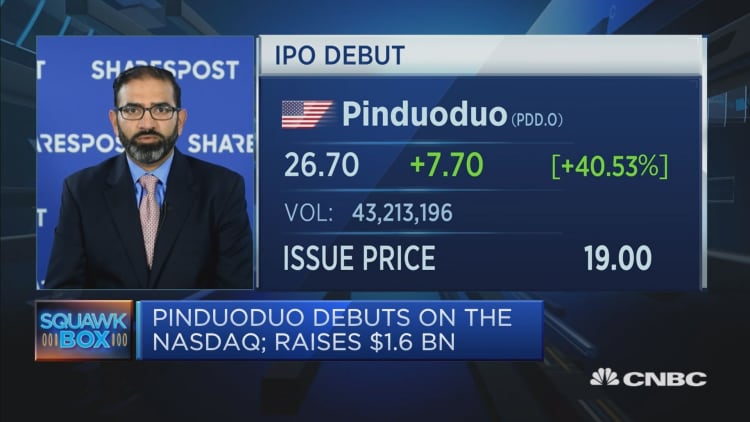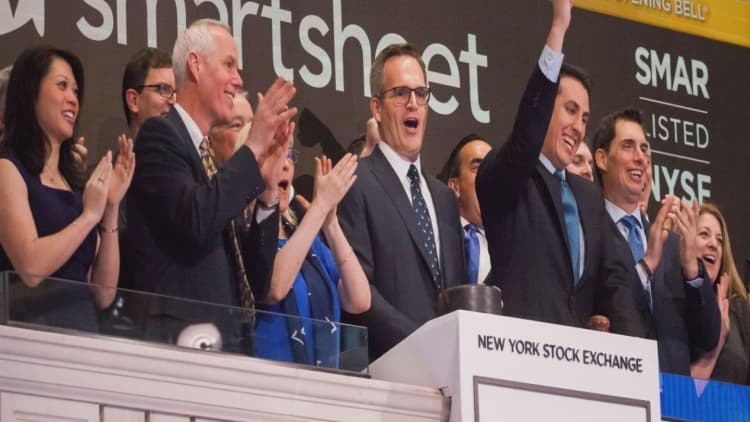Tensions between Washington and Beijing may have dominated business headlines throughout the year, but that did not stop Chinese companies from flocking to the U.S. to list on stocks exchanges there.
In fact, there were more Chinese initial public offerings in the U.S. this year compared to 2017.
There were 37 IPOs by Chinese companies in the U.S. this year, raising a total of $9.2 billion, according to data by law firm Baker McKenzie. That's an increase from last year's 20 IPOs that raised $3.6 billion, the statistics showed.
Nasdaq, which attracted several large initial public offerings by Chinese companies this year, said it is still "rigorously" luring Asian firms to list on its exchange.
"There are small groups of companies who will decide to list somewhere else besides the local markets here in Asia, and we vigorously pursue them and believe that they belong on Nasdaq," Bob McCooey, Nasdaq's Asia Pacific chairman, told CNBC's "Squawk Box" on Wednesday.
Nasdaq has had more than 180 IPOs this year, an increase from 136 in 2017, according to McCooey. Among the new listings on Nasdaq this year are Chinese video streaming company iQiyi's $2.3 billion offering and Chinese e-commerce company Pinduoduo's $1.6 billion listing.
McCooey said he hasn't heard of companies delaying IPO plans because of the trade war, partly because many Chinese firms that list in the U.S. are not within the direct line of fire in the tariff fight between the world's two largest economies.
He added that he doesn't think tensions between the U.S. and China would derail listing momentum in the U.S.

"I'm not going to say that we'll do well over 180 next year. But it feels like, both from here as well as domestically, that the IPO market will continue to be very, very strong. The trade tensions, trade war will find a resolution. Whether in the short term or medium term, there will be one," he said.
Globally, the total value of IPOs rose 5 percent year-on-year to $219.4 billion in 2018, according to Baker McKenzie. But the number of IPOs fell 17 percent from last year to 1,448 deals in 2018, the law firm said.
The global IPO market has been supported by Chinese companies raising funds outside their home country, said Baker McKenzie.
"Companies are no longer bound by geography when looking at where to list, but gravitate to venues that meet their overall objectives," Ashok Lalwani, Asia Pacific head of international capital markets practice at Baker McKenzie, said in a report earlier this month.
"It is not so much a question of why one market is unattractive but rather why another fits the bill better. The US has been the hub of innovation, though China is making strides, and has the support that tech listings need to succeed post listing, including excellent research coverage," he added.
WATCH: What is an IPO?



